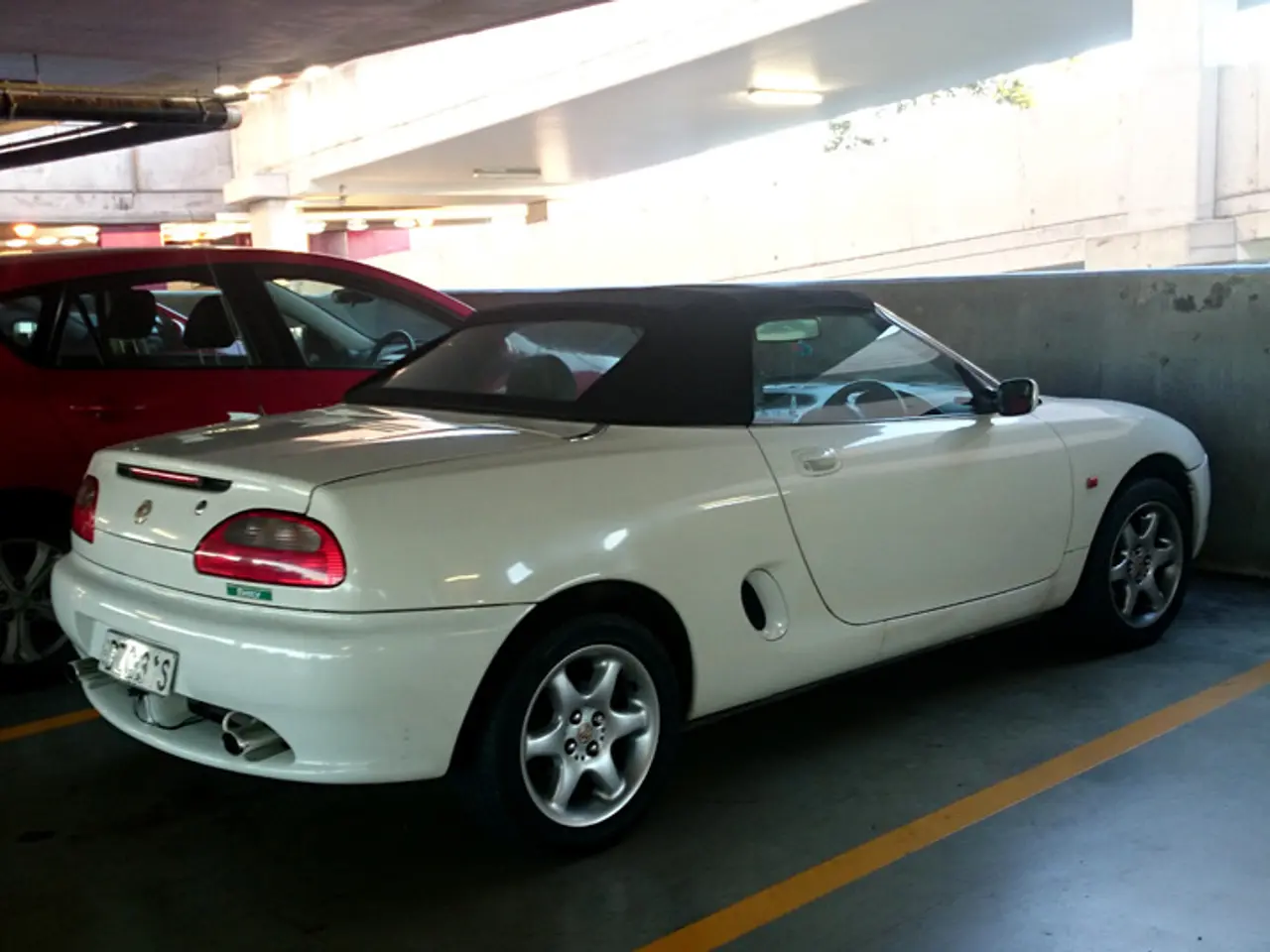Porsche's innovative strategy: reusing old car batteries for storing eco-friendly energy, a groundbreaking endeavor in the automotive sector
Porsche is making strides in sustainable innovation with its energy storage project at its Leipzig site. The facility, set to connect to the power grid soon, is a significant step towards greening local consumption and reducing the company's carbon footprint.
The energy storage facility is divided into four blocks, each designed for easy maintenance and replacement of modules sourced from Taycan vehicles. With a total storage capacity of 10 megawatt-hours (MWh) and a power output of 5 MW, the facility will effectively manage electricity by storing it for later use.
The electrical engineering department head at Porsche is leading the initiative to implement this groundbreaking development. In a move that reshapes an economy that can circularize in unexpected ways, Porsche is pioneering by repurposing batteries from its own vehicles for a lifespan of ten years.
Some of the Taycan batteries to be used for energy storage are still under warranty, indicating Porsche's commitment to quality and sustainability. The company is planning to store the energy produced by the solar panels at its Leipzig site using pre-production and production Taycan batteries.
The Leipzig site is now equipped with solar panels, but the energy produced was not previously stored. The energy storage project is designed to store the green energy produced by the site, optimizing the plant's consumption, better managing electricity production peaks, and participating in the energy market with surplus generation.
Porsche is collaborating with the University of Applied Sciences in Zwickau to innovate green energy management at its Leipzig site. This partnership supports the second-life use of EV batteries, helping to extend battery life beyond automotive applications and thereby promoting sustainable energy solutions.
The project lays the groundwork for a system likely to influence others in the automotive world, converting used car batteries into green energy storage modules. While the specifics of this collaboration are not yet detailed, related efforts by other automakers and academic institutions focus on battery recycling, second-life applications, and green energy storage.
This initiative by Porsche is likely to serve as an inspiration for other entities in the automotive industry. By repurposing batteries from its own vehicles for a lifespan of ten years, Porsche innovatively steers towards eco-friendliness, setting a precedent for sustainable energy practices in the industry.
[1] Source: Related Research Projects
- Porsche's energy storage facility, consisting of four blocks, is a significant step towards sustainable innovation, as it aims to reduce the company's carbon footprint and green local consumption, especially with the use of Taycan vehicle batteries.
- Sourced from Taycan vehicles, the facility's modules are designed for easy maintenance and replacement, demonstrating Porsche's commitment to quality and sustainability.
- The energy storage project, powered by solar panels at the Leipzig site, is designed to store and efficiently manage electricity, optimizing plant consumption and better managing electricity production peaks.
- Through a partnership with the University of Applied Sciences in Zwickau, Porsche's project focuses on innovating green energy management and promoting sustainable energy solutions by extending the life of EV batteries beyond automotive applications.




